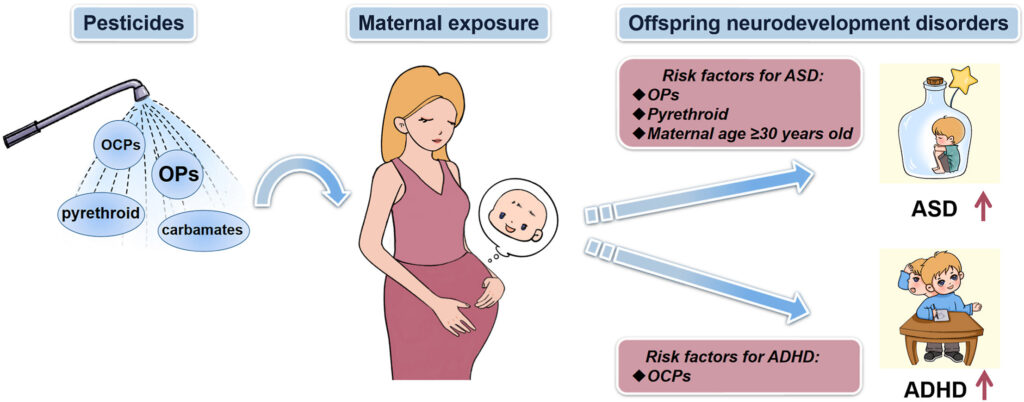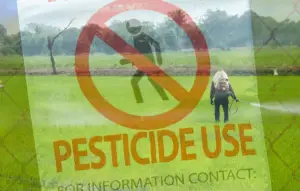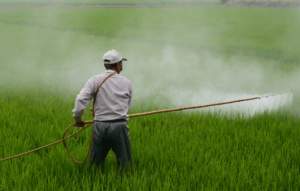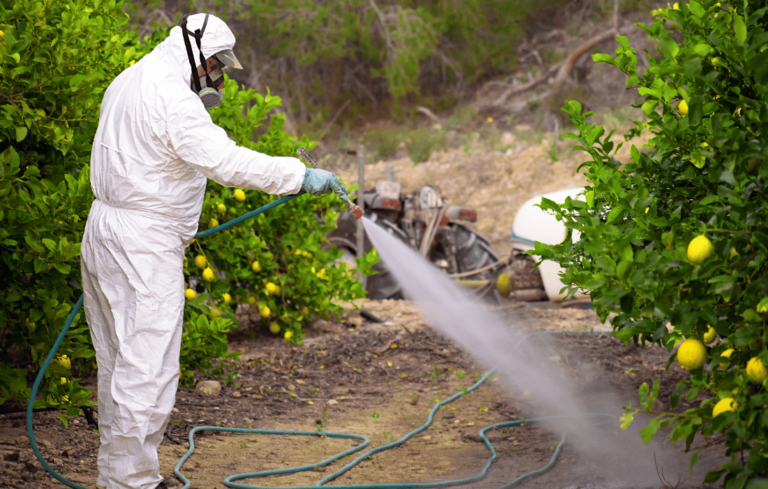Every so often, a bill sneaks through the legislative process so quietly that by the time the public realizes what’s happened, the damage is already done. Georgia’s SB144 is one such bill. While most people were busy living their lives, this piece of legislation was handed over like a gift-wrapped present to pesticide manufacturers, ensuring they are immune from liability—no matter the harm their chemicals may cause. If you’re wondering how that could possibly be legal in a country that prides itself on justice and accountability, you’re not alone.
What Is SB144, and Why Should You Care?
SB144, recently passed in Georgia, gives pesticide manufacturers blanket immunity from lawsuits regarding harm caused by their products. Essentially, as long as the Environmental Protection Agency (EPA) approves the pesticide label, the manufacturers are off the hook—even if that label turns out to be misleading or outright false.
This is a monumental win for companies like Bayer (formerly Monsanto) and ChemChina (formerly Syngenta), both of which are currently facing thousands of lawsuits over claims that their pesticides have caused cancer, Parkinson’s disease, and other chronic illnesses. And if you think this legislation is just a Georgia issue, think again. Similar bills are being pushed in at least 11 other states, including Florida, Idaho, Iowa, Mississippi, Missouri, Montana, North Dakota, Oklahoma, Tennessee, and Wyoming.
The History of Pesticide Controversies
Let’s not forget that this isn’t the first time chemical manufacturers have tried to dodge accountability. Here’s a quick refresher:
Roundup and Glyphosate Lawsuits: Bayer-Monsanto has faced over 170,000 lawsuits linking glyphosate, the active ingredient in Roundup, to non-Hodgkin’s lymphoma. The company has paid $11 Billion in settlements, with thousands of new cases pending.
Paraquat and Parkinson’s: Over 5,800 lawsuits have been filed against ChemChina-Syngenta regarding their paraquat herbicide, which has been linked to a dramatically increased risk of Parkinson’s disease.
Agent Orange and Dioxins: Monsanto was one of the primary manufacturers of Agent Orange, a defoliant used during the Vietnam War, which led to massive health problems, including cancer and birth defects, for both soldiers and civilians.
If these companies have a long and well-documented history of producing harmful chemicals, why are they now being granted legal immunity instead of being held to even stricter standards?
The Health Risks of Pesticides
Pesticides are designed to kill pests, but their impact doesn’t stop there. These chemicals infiltrate our food, water, and environment, wreaking havoc on human health. From cancer to endocrine disruption, here’s why you should be concerned.
1. Cancer and Endocrine Disruption
The International Agency for Research on Cancer (IARC) has classified glyphosate as a “probable human carcinogen.” Multiple studies link pesticide exposure to increased risks of leukemia, non-Hodgkin’s lymphoma, bladder cancer, pancreatic cancer, and colon cancer.
2. Neurotoxicity and Parkinson’s Disease
Paraquat, a widely used herbicide, has been strongly linked to Parkinson’s disease. There is a large amount of research dating as far back as the early 1980s showing that prolonged pesticide exposure can initiate neurodegenerative processes, resulting in lasting and potentially irreversible brain damage.
3. Harm to Children’s Development
Studies have found that prenatal pesticide exposure was linked to lower IQ scores, increased ADHD and autism diagnoses. and impaired cognitive function in children. The American Academy of Pediatrics has warned about the dangers of pesticide exposure for decades, yet state governments continue to prioritize corporate profits over public safety.
4. Environmental Devastation
Pesticides leach into groundwater, contaminating drinking water supplies.
Pollinators like bees are dying off at alarming rates due to exposure to neonicotinoid insecticides.
Pesticide residues remain on fruits, vegetables, and grains, even after washing and cooking, ensuring constant low-level exposure.
5. Gut Health Effects
Pesticides can negatively impact the gut microbiome, disrupting the balance of beneficial bacteria essential for digestion, immunity, and mental health. Glyphosate, in particular, acts as an antibiotic, selectively killing beneficial gut bacteria while allowing harmful strains to flourish. This imbalance has been linked to inflammatory bowel disease, leaky gut syndrome, and even neurological conditions from damage to the gut-brain axis. Studies have shown that pesticide exposure can disrupt gut microbiota composition, which may negatively impact cognitive processes in humans.
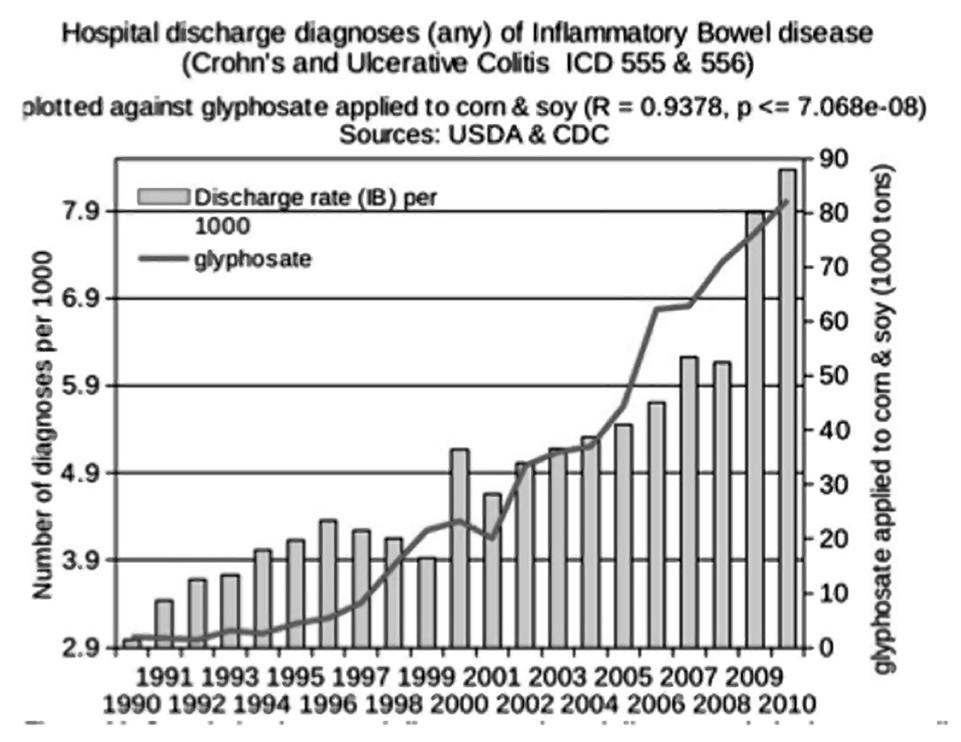
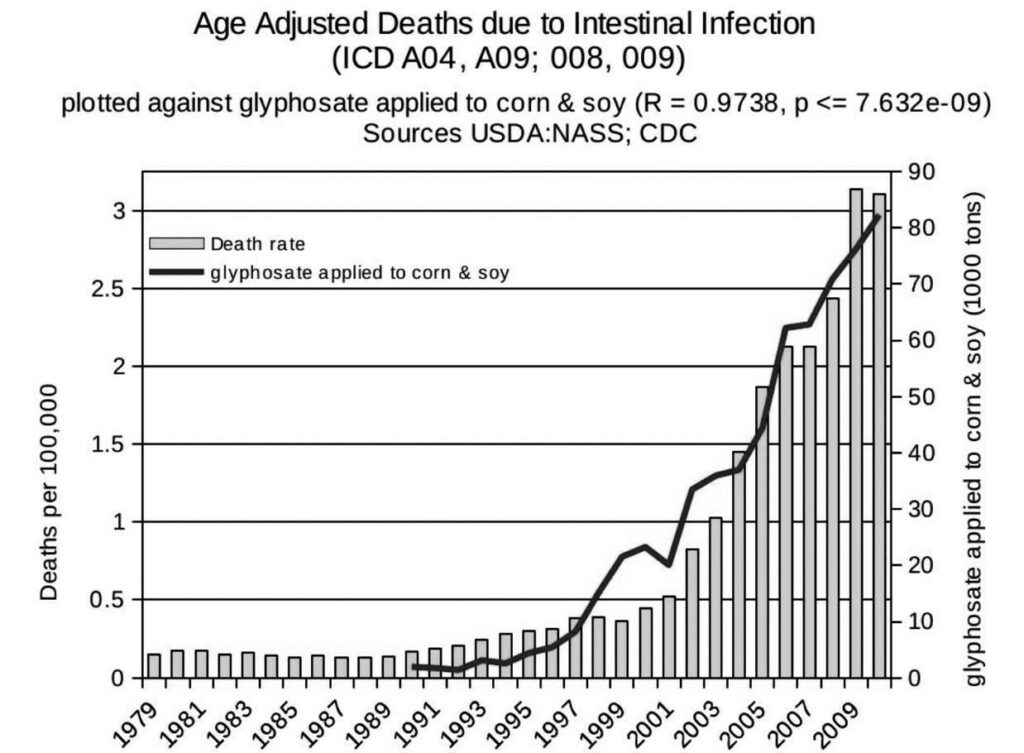
The hidden cost of industrial agriculture: Glyphosate’s role in rising intestinal diseases and gut dysfunction. Source: Journal of Organic Systems
6. Reproductive System Disruption
Long-term pesticide exposure reduces fertility, lowers sperm counts, and increases miscarriage and birth defect risks. Agricultural workers and highly exposed communities face the greatest dangers, with glyphosate even found in umbilical cord blood. Long-term pesticide exposure is linked to reduced fertility, lower sperm counts, increased miscarriages, and birth defects. Agricultural workers and communities near pesticide-heavy areas face the highest risks, with glyphosate even detected in umbilical cord blood, raising concerns about prenatal exposure.
7. Oxidative Stress and Cellular Damage
Pesticide exposure, particularly glyphosate, has been linked to oxidative stress, a key factor in cellular aging and chronic disease. A 2023 study in the Journal of the National Cancer Institute found that agricultural workers with high glyphosate exposure had significantly elevated biomarkers of oxidative stress, suggesting increased DNA damage and a higher risk of cancer.
How SB144 Shields Chemical Giants
SB144 is a major win for Bayer-Monsanto and pesticide manufacturers, granting them sweeping legal immunity. Passed in Georgia, this bill sets a precedent for corporate protection at the expense of public health:
Shields pesticide manufacturers from lawsuits. Bayer, ChemChina-Syngenta, and Corteva are now immune from legal action, regardless of emerging evidence of their chemicals’ dangers.
Strips victims of legal recourse. Farmers and residents suffering from pesticide-related illnesses like cancer and Parkinson’s disease can no longer seek justice.
Blocks local pesticide regulations. Cities and counties can no longer impose stricter pesticide laws to protect their communities.
Georgia is just the start. Similar bills are advancing in at least 10 other states, including Iowa, Florida, Missouri, Oklahoma, and more. If these corporate-backed laws continue spreading, Big Ag will be shielded from accountability—no matter the harm caused.
Bayer-Monsanto is trying to strip your right to sue for pesticide harm—fight back before it’s too late. Whether you live in an affected state or not, take a stand—sign this petition to let the EPA know your concern!
Active State Legislation:
- Tennessee HB0809/SB0527
- Mississippi HB1221 (Died In Committee on 02/04/2025)
- Georgia SB144
- Idaho HB303
- Iowa SB394
- Missouri HB544
- Montana HB522
- North Dakota HB1318
- Oklahoma HB1755
- Wyoming HB0285 (Died in Committee on 03/03/2025)
Glyphosate and Atrazine: The Twin Terrors of Agriculture
When it comes to the most insidious chemicals in modern agriculture, glyphosate and atrazine take the crown. These widely used herbicides have been linked to everything from cancer to hormonal disruptions, affecting humans, wildlife, and entire ecosystems.
1. Glyphosate: The Silent Carcinogen
Glyphosate, the active ingredient in Roundup, is the most widely used herbicide in the world. However, its dangers extend far beyond weed control. Bayer, which owns Monsanto, profits from both sides of the equation: Monsanto sells glyphosate, which has been linked to non-Hodgkin’s lymphoma, and Bayer sells medications to treat the disease.
Carcinogenic Properties: The IARC classified glyphosate as a “probable human carcinogen,” linking it to non-Hodgkin’s lymphoma, leukemia, and other cancers.
Endocrine Disruption: Glyphosate disrupts hormonal balance, affecting fertility and increasing the risk of birth defects.
Neurotoxicity: Studies indicate glyphosate exposure can damage neural pathways, contributing to conditions like Alzheimer’s and autism.
Microbiome Disruption: Glyphosate acts as an antibiotic, killing beneficial gut bacteria and contributing to digestive disorders and immune dysfunction.
Even more ironic is the war against nature itself—glyphosate kills dandelions and other so-called ‘weeds,’ which are medicinal plants beneficial for heart and liver health. While Monsanto labels them as pests, Bayer sells heart medications to compensate for the damage. The cycle of profit and destruction is clear: eliminate natural remedies, introduce toxic chemicals, and then sell the cure.
Genesis 1:29: “And God said, “Behold, I have given you every plant yielding seed that is on the face of all the earth, and every tree with seed in its fruit. You shall have them for food.”
2. Atrazine: Chemical Castration in a Bottle
Atrazine, another widely used herbicide, has been shown to have devastating effects on both wildlife and human health.
Sex Reversal in Frogs: UC Berkeley research found that atrazine exposure can chemically castrate male frogs, turning some into females, thereby disrupting entire populations.
Endocrine Disruption: Atrazine interferes with hormone production, leading to reproductive issues in fish, amphibians, and humans.
Carcinogenic Potential: Studies suggest atrazine exposure may be linked to breast and prostate cancer, as well as developmental disorders.
Water Contamination: Atrazine is the most common pesticide contaminant in U.S. water supplies, putting millions at risk of chronic exposure.
The MAHA Movement vs. The Monsanto Protection Act
The fight for clean food and corporate accountability is intensifying as Bayer, the corporate successor to Monsanto, pushes for state-level immunity from lawsuits. Meanwhile, RFK Jr.’s MAHA movement is fighting back, determined to hold these chemical giants responsible for the harm they’ve caused.
1. Bayer’s Power Play: Undermining MAHA and Shielding Glyphosate
Bayer AG is aggressively lobbying in key farming states like Missouri, Iowa, Idaho, Oklahoma, North Dakota, and Georgia to pass laws shielding it from lawsuits related to its controversial herbicide, Roundup. These bills, commonly dubbed “Monsanto Protection Acts,” would make EPA approval the final word, preventing future litigation even if new evidence proves glyphosate’s dangers. This move directly challenges the Make America Healthy Again (MAHA) movement, led by HHS Secretary Robert F. Kennedy Jr., which seeks to hold corporations accountable for toxic agricultural practices.
2. RFK Jr.’s 2018 Landmark Lawsuit Against Monsanto
One of the biggest victories against Monsanto came in 2018 when a California jury found the company liable for causing cancer in school groundskeeper Dewayne Johnson. The trial revealed damning internal documents proving Monsanto had manipulated scientific research and misled regulatory agencies about the dangers of glyphosate.
RFK Jr., who represented Johnson in the case, stated, “This verdict proves that when ordinary citizens hear the facts about Monsanto’s products, and the lengths to which this company has gone to buy off scientists, deceive the public, and influence government regulatory agencies, there is no confusion.” The jury awarded Johnson $289 million in damages, including $250 million in punitive damages for Monsanto’s deliberate deception.
This case opened the floodgates for over 100,000 lawsuits against Monsanto, forcing Bayer to pay out more than $10 billion in settlements. But rather than reforming its practices, Bayer is now working to prevent future litigation by ensuring it can never be held accountable again.
HUGE WIN in #MonsantoTrial! #MONSANTO GUILTY ON ALL COUNTS!https://t.co/Bi9xtGyuDN
— Robert F. Kennedy Jr (@RobertKennedyJr) August 10, 2018
3. The Battle for Clean Food and Accountability
The MAHA movement has been instrumental in exposing the dangers of glyphosate, which has been linked to cancer and other chronic illnesses in numerous studies. RFK Jr. and his allies have been advocating for cleaner food, safer water, and the right to hold corporations accountable for the toxic chemicals infiltrating our environment.
However, Big Ag’s propaganda machine is running at full speed. Monsanto is pushing back with aggressive lobbying and advertising promoting their pesticide/GMO agenda—I was personally targeted by one of these ads on Facebook last month (2/25), promoting farmers’ “desperate need for glyphosate”.
As discussed before, the company is backing legislation that would grant pesticide manufacturers immunity from lawsuits if their products are EPA-approved in key agricultural states like Missouri, Iowa, Idaho, Oklahoma, North Dakota, and Georgia. This effectively means that even if future studies prove that Roundup is far more dangerous than previously thought, Bayer would be untouchable in court.
4. Bayer’s Influence in Farming States
Bayer’s political influence is staggering. Since 2002, Monsanto and Bayer have donated over $530,000 to Iowa politicians alone. In Missouri, a bill narrowly passed the House of Representatives last month that would make the EPA’s warning label on Roundup sufficient to comply with state law—effectively ending most pending litigation against Bayer.
Iowa, where cancer rates are among the highest in the U.S., is seeing particularly fierce resistance to Bayer’s legislative efforts. State Representative Megan Srinivas (D), a physician, has called out the influence of corporate lobbying in her state, warning that the legislation would make it impossible for victims of pesticide exposure to seek justice.
What You Can Do to Fight Back
The good news? You’re not powerless. While Big Ag lobbies for legal immunity, you can take action to protect your health and hold these corporations accountable. From signing petitions to strengthening your body’s defenses, here’s how you can make a difference.
1. Sign the Petition & Demand Action
Bayer-Monsanto is trying to strip your right to sue for pesticide harm, but you can fight back. Sign the petition to tell the EPA that corporate immunity has no place in our legal system. Click here to take action now.
2. Contact Your State Representatives
If you live in any of the states considering similar bills, call your state representatives and demand that they reject pesticide immunity legislation. Your voice matters—politicians must hear from the people, not just lobbyists.
3. Support Organic and Regenerative Agriculture
Vote with your dollar by purchasing organic, pesticide-free foods and supporting local farmers who use regenerative practices. Every dollar spent on clean food is a stand against toxic agricultural practices.
You can either pay the farmer now or the Pharma later, your choice.
4. Detox Your Body from Glyphosate Exposure

Glyphosate wreaks havoc on gut health and overall well-being, but you can help counteract its effects with targeted probiotics. Two of the best options:
Biome-Medic – Specifically designed to detoxify glyphosate and restore gut health.
Essential Blend Probiotics – A powerful, multi-strain probiotic for rebuilding microbiome balance after pesticide exposure. Save 10% on Essential Blend Probiotics with code “KYLETOTHEMOON”.
5. Educate Yourself and Others
Spread awareness about the dangers of pesticides and the corporate influence behind these immunity bills. Share articles, engage in discussions, and challenge lawmakers to prioritize public health over corporate profits.
6. Advocate for National Policy Change
Organizations like the Environmental Working Group (EWG), Pesticide Action Network, and Children’s Health Defense are fighting back against Big Ag. Consider supporting their work through donations, activism, or volunteering.
Final Thoughts: A Fight for Accountability
The passing of SB144 in Georgia is not just a local issue—it’s a dangerous precedent that could spread nationwide. If corporations are granted immunity from lawsuits over toxic chemicals today, what will they be immune from tomorrow?
This is a fight for transparency, accountability, and basic human health. We cannot allow chemical companies to poison us with impunity. It’s time to stand up, push back, and demand better.


